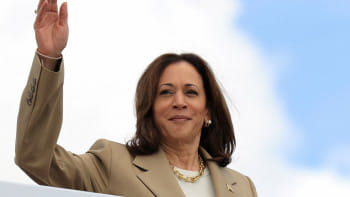What can happen after the US elections?

The polling numbers for the US Presidential election show a horse race. The early voting does not yet indicate any specific trend. Either Donald Trump or Kamala Harris can win. On November 5, election day, the Democrats could lose the Senate Majority, and the predictive models show a 50 – 50 split. On the contrary, the House of Representatives could flip from Republican to Democrat. A razor-thin majority is expected in both legislative bodies. No one knows what is coming. However, in this scenario or its comparable approximation, it would not be easy to implement policies for either of the two who win the presidency. It is highly possible that at the end of the day, the US may end with an executive branch and a legislative branch squabbling in a gridlock on many policy issues. The governing procedure in the Senate could be changed to avoid an impasse by reforming the use of filibusters that hinder a vote on a bill.
This is a unique parliamentary procedure. The Senate tradition of unlimited debate has allowed for the use of the filibuster, a loosely defined term for action designed to prolong debate and delay or prevent a vote on a bill, resolution, amendment, or other debatable question. Cloture is a process that prevents filibusters. Currently, cloture requires 60 votes out of 100. This number has changed as time passes, but the procedure is complicated. However, a few types of legislation, such as budget reconciliation and Senate confirmation of Supreme Court judge appointment, are done now on a simple majority. Based on the polling forecast about Senate elections, I anticipate that the cloture number will stay at 60.
Let us examine those policy differences, which include abortion, foreign affairs—especially for the Middle East, NATO, and Ukraine, energy production, environmental regulation, health care, immigration, taxation, and international trade and tariffs. This is one of the most recent election cycles in US history in which the policy differences between the two presidential candidates are significantly different.
Donald Trump plans to expand his tax cut of 2017, increase tariffs, eliminate environment-friendly regulations, restrict immigration, support state laws against abortion, increase hydrocarbon production, and end the war in Ukraine and the Middle East.
By contrast, Kamala Harris plans to increase rich-class tax, restore Roe v Wade to assure abortion as a women's right, assist housing ownership for the underprivileged, impose strict regulations for environmental causes, invest in renewable energy, and expand government-provided healthcare.
Let us compare the costs associated with Trump's policies to Harris. Currently, the national debt held by the USA is $28.2 trillion against its GDP, or Gross Domestic Product, of $28.269 trillion. According to Richard Rubin's report in The Wall Street Journal, Trump's plan will boost the budget by $7.5 trillion over the next decade, double that of Harris's plan. The budget deficit for the financial year 2024 stands at $1.9 trillion. One can imagine the negative impact on future generations regarding budget deficits and national debt.
The question is how the fiscal conservatives of the Republican Party in the Senate, who advocate lower budget deficits and national debt, would react to Trump's plan if he is elected President. Additionally, the traditional conservatives, the "Reaganites," do not support excessive tariffs. Despite all these issues, most voters consistently grade Trump higher than Harris for the economy.
On the other hand, if Harris wins, what would her foreign policy be for the Middle East? Will it be the recycled version of Biden? Will she be able to hold the motley coalition of progressives, especially Bernie Sanders's followers, Gen Z, and the moderate democrats?
November 5 will tell us if Americans will have to endure a period of challenging governance unlike any we have seen before.
Dr Mostofa Sarwar is professor emeritus at the University of New Orleans, former visiting professor and adjunct faculty at the University of Pennsylvania, and former dean and former vice-chancellor of Delgado Community College. He can be reached at [email protected].
Views expressed in this article are the author's own.
We welcome your contributions and analysis of global events, and responses to our articles. To submit articles to Geopolitical Insights, please send an email to [email protected].
Follow The Daily Star Opinion on Facebook for the latest opinions, commentaries and analyses by experts and professionals. To contribute your article or letter to The Daily Star Opinion, see our guidelines for submission.

 For all latest news, follow The Daily Star's Google News channel.
For all latest news, follow The Daily Star's Google News channel. 







Comments